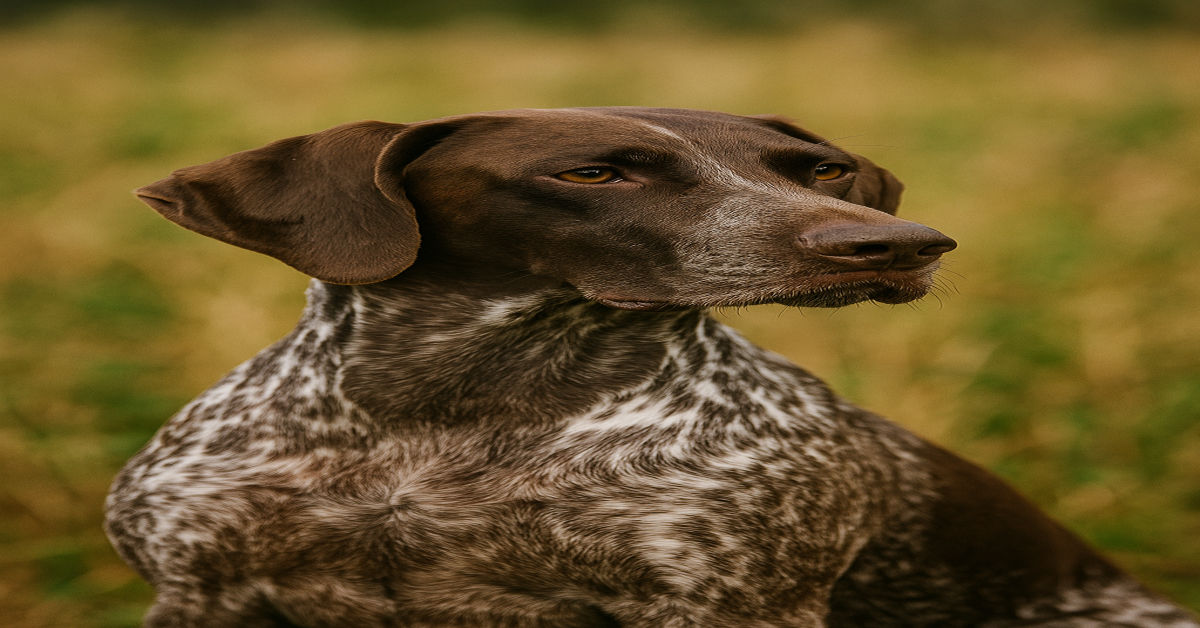In the quiet dawn of South Carolina’s misty woods, a sleek, agile figure moves with purposeful grace. Nose low, eyes sharp and tail high—this is the German Shorthaired Pointer SC, a breed known not just for its striking appearance but for the heart and soul it brings to both field and family.
A Breed Born for Adventure
The German Shorthaired Pointer often affectionately called the GSP is a dog designed by nature and refined by human hands for versatility. With roots tracing back to 19th-century Germany, the breed was developed as an all-purpose hunting dog. It’s no wonder they’re a favorite in the Carolinas, where outdoor lifestyles blend seamlessly with Southern hospitality.
But this isn’t just a hunting dog—it’s a companion, an athlete, and often, the soul of the household. In South Carolina, a place rich with hunting heritage, fields, lakes, and a love of the outdoors, the GSP thrives. They are as comfortable in the duck blind as they are on the couch after a long day in the sun.
Athleticism in Action
One of the most defining features of the German Shorthaired Pointer SC is its athleticism. These dogs are built like Olympians—lean, strong, and powerful. Their smooth, short coat, usually in liver, liver and white, or roan, is easy to maintain and perfect for Southern heat. Their webbed feet and muscular legs make them exceptional swimmers, and their natural instincts make them superb pointers and retrievers.
In South Carolina, where terrain varies from pine forests to marshlands, the GSP’s adaptability shines. Whether it’s flushing quail from a thicket or retrieving a duck from a swampy pond, they move with purpose and pride. It’s this physical prowess that makes them a favorite among sporting dog enthusiasts.
A Companion Through and Through
Beyond the field, the German Shorthaired Pointer SC has a softer side. They’re incredibly affectionate and bond deeply with their humans. Their energy level is high—no surprise there—but with proper exercise and stimulation, they become loyal, loving, and obedient family members.
In neighborhoods across Charleston, Columbia, and Greenville, these dogs are seen jogging alongside their owners, running freely in dog parks, and attending obedience classes. They are not couch potatoes, but they do enjoy downtime with their families. Children adore them, and their eagerness to please makes them patient playmates and gentle protectors.
Intelligence and Training
The German Shorthaired Pointer SC is a thinking dog. They’re problem-solvers, which can be both a blessing and a challenge. With high intelligence comes a need for structured training and mental stimulation. A bored GSP is a mischievous GSP. Chewed shoes, dug-up gardens, and escape artist antics aren’t uncommon in under-stimulated pups.
However, with consistent, positive reinforcement training, they excel. They pick up commands quickly, and their eager-to-please nature makes them responsive learners. In South Carolina’s many dog training communities, from casual obedience classes to professional hunting programs, GSPs are star pupils.
Community and Connection
What’s especially heartwarming is the growing sense of community among German Shorthaired Pointer SC owners. Across towns and cities, meetups are organized in parks, group hikes through the Blue Ridge foothills are planned, and training tips are freely shared. These events are a testament to the breed’s ability to bring people together.
Rescue and rehoming efforts in the state are also strong. Many South Carolinians have opened their homes to GSPs in need, drawn by the breed’s charisma and the rewarding challenge of helping a high-energy dog find balance.
Health and Care
Like all breeds, the German Shorthaired Pointer SC has specific health concerns to be aware of. Hip dysplasia, bloat, and eye conditions can affect the breed. Responsible breeders in the region prioritize health screenings, and many owners are proactive in their care routines. Regular vet checkups, a nutritious diet, and plenty of exercise keep most GSPs thriving well into their golden years.
Their coat requires minimal grooming—a brush every few days to manage shedding and occasional baths after a particularly muddy hunt. Their nails, ears, and teeth require standard upkeep, but overall, they are a low-maintenance breed in the grooming department.
Lifestyle Fit: Is a GSP Right for You?
The German Shorthaired Pointer SC isn’t for everyone. If you’re looking for a low-energy dog to hang out indoors all day, this may not be your best match. But if you love the outdoors, enjoy physical activity, and have time to devote to training and bonding, the GSP could be your perfect partner.
They do best with a job to do—whether it’s hunting, agility sports, dock diving, or just keeping up with your daily run. A fenced yard is a plus, and time spent with them is non-negotiable. They’re not a breed to be left alone for long hours.
For South Carolinians who embrace an active lifestyle, the German Shorthaired Pointer SC is a natural choice. Their enthusiasm is infectious, and their loyalty runs deep.
Heart and Heritage
Perhaps what makes the German Shorthaired Pointer SC so special is the blend of tradition and modern companionship it represents. It’s a breed that respects its roots in the field but adapts beautifully to the rhythms of contemporary life.
They’re the kind of dog that makes strangers stop and ask, “What kind of dog is that?” They’re the ones bounding through the surf at Folly Beach, pointing out a squirrel at Paris Mountain, or sitting patiently while their owner enjoys a cold brew on a dog-friendly patio in Charleston.
To own a German Shorthaired Pointer SC is to invite a bit of wild energy into your life—and to be endlessly rewarded by loyalty, laughter, and love.
FAQs
1. What does the “SC” in German Shorthaired Pointer SC stand for?
The “SC” refers to South Carolina, highlighting the regional identity of the breed’s community in that state. It often implies that the dog has been bred, trained, or adopted in South Carolina or that the owner is part of a local GSP community.
2. How much exercise does a German Shorthaired Pointer need daily?
A GSP requires at least 1 to 2 hours of vigorous activity per day. This can include running, swimming, fetching, or hunting. Without enough exercise, they may become bored and destructive.
3. Are German Shorthaired Pointers good with children and other pets?
Yes, GSPs are generally good with children due to their gentle and affectionate nature. However, early socialization is important. They can get along well with other dogs, but their prey drive may pose challenges with smaller animals unless trained from an early age.
4. Do German Shorthaired Pointers shed a lot?
Yes, they shed moderately year-round. Their short coat is easy to groom, but weekly brushing helps reduce shedding and keeps their coat healthy.
5. Can a German Shorthaired Pointer live in an apartment?
It’s possible, but not ideal. GSPs thrive in homes with large yards and space to run. Apartment living can work if they get sufficient daily exercise and mental stimulation, but it requires a very committed owner.


